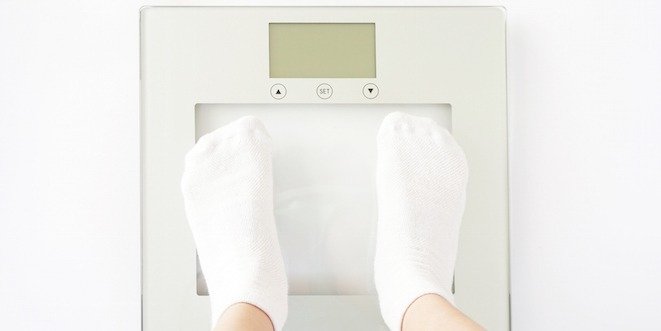
Are you wondering, do I have diabetes? The reality is, anyone can develop this disease. That’s why it’s so important to be aware of signs and symptoms.
When you think about diabetes symptoms, drinking and peeing comes to mind. But there are other symptoms that can indicate a need to get checked for type 1 diabetes.
What is type 1 diabetes?
Type 1 diabetes is an autoimmune disease that causes the body’s pancreas to stop producing insulin. Type 1 diabetes is usually diagnosed in childhood, adolescence or early adulthood. While it can be diagnosed in people who are over 40 years old, this is very rare.
There are both signs and symptoms of type 1 diabetes: symptoms are experienced by the person affected by the disease; signs can be detected by someone other than the person affected by the disease.
Symptoms of type 1 diabetes
The most common symptoms of type 1 diabetes are frequent urination and excessive thirst. Urinating is the body’s way of trying to get rid of extra glucose in the blood. As a result of urinating very frequently, people can become very dehydrated and feel the need to drink more fluids than normal.
Other symptoms of type 1 diabetes include:
- Irritability and mood changes: any non-specific mood changes or increase in irritability, including general moodiness or crying, may be an early sign of diabetes.
- Tiredness and weakness: increased fatigue, or needing more sleep/naps than usual may be an early sign of the disease.
- Fruity odour on the breath: this is caused by high ketones in the blood, and is something that is detectable when having a conversation with someone.
Contact your healthcare team immediately, if you notice that you or your child have several of the above symptoms.
Signs of type 1 diabetes
The signs of diabetes include:
- High blood sugar levels: this would be detected by a doctor, through a blood test.
- Unexplained weight loss: new-onset weight loss that occurs even when you are eating normally and feel hungry, can be an early sign of diabetes.
- A fast heart rate: this may or may not be something that you can feel, but is usually first detected by a doctor during a physical examination of heart rate.


Articles about Type 1 Diabetes
 Ketones...what are they and what do they mean?People often ask what it means when their meter flashes "test ketones".
Ketones...what are they and what do they mean?People often ask what it means when their meter flashes "test ketones". Do insulin injections hurt? Get the facts.When told they need to move to insulin injections, many people fear the pain associated with needles. Yet the reality is that when insulin therapy is started, most people are surprised to find how little the injections hurt.
Do insulin injections hurt? Get the facts.When told they need to move to insulin injections, many people fear the pain associated with needles. Yet the reality is that when insulin therapy is started, most people are surprised to find how little the injections hurt. Newly diagnosed with type 1 diabetes? 8 things you need to knowIf you or your child are newly diagnosed with type 1 diabetes, it’s completely natural to feel overwhelmed. Here are eight quick tips that you can use to help you take control.
Newly diagnosed with type 1 diabetes? 8 things you need to knowIf you or your child are newly diagnosed with type 1 diabetes, it’s completely natural to feel overwhelmed. Here are eight quick tips that you can use to help you take control. The top 10 differences between type 1 and type 2 diabetesPeople who aren’t familiar with the disease tend to lump type 1 and type 2 diabetes together. However, nothing could be more misguided! While some of the principles of management may be the same, there are many differences between type 1 and type 2 diabetes.
The top 10 differences between type 1 and type 2 diabetesPeople who aren’t familiar with the disease tend to lump type 1 and type 2 diabetes together. However, nothing could be more misguided! While some of the principles of management may be the same, there are many differences between type 1 and type 2 diabetes. Back-to-school tips for people with diabetesThe back-to-school period brings lots of new beginnings. New beginnings are exciting but also bring challenges, especially for students with diabetes in the later years of high school.
Back-to-school tips for people with diabetesThe back-to-school period brings lots of new beginnings. New beginnings are exciting but also bring challenges, especially for students with diabetes in the later years of high school. Type 1 diabetes (juvenile diabetes) medicationsPeople with type 1 diabetes have absolutely no pancreatic function, so their bodies are unable to make insulin.
Type 1 diabetes (juvenile diabetes) medicationsPeople with type 1 diabetes have absolutely no pancreatic function, so their bodies are unable to make insulin. Telling friends about a diagnosis of type 1 diabetes (juvenile diabetes)When adults are diagnosed with type 1 diabetes, it is their right to decide who to tell. It is usually recommended to tell people with whom you spend a lot of time, such as workplace colleagues.
Telling friends about a diagnosis of type 1 diabetes (juvenile diabetes)When adults are diagnosed with type 1 diabetes, it is their right to decide who to tell. It is usually recommended to tell people with whom you spend a lot of time, such as workplace colleagues. Managing type 1 diabetes at birthday partiesYes, we know the very thought of your child going off to a party at someone else's home may at first fill you with horror: away from your control, over-excited, distracted by all the fun, and surrounded by an abundance of enticing high sugar and high carb treats.
Managing type 1 diabetes at birthday partiesYes, we know the very thought of your child going off to a party at someone else's home may at first fill you with horror: away from your control, over-excited, distracted by all the fun, and surrounded by an abundance of enticing high sugar and high carb treats. Managing pregnancy and type 1 diabetesPregnancy can present challenges for any woman. However, managing pregnancy and type 1 diabetes can add additional challenges, and therefore result in new stressors in a woman’s life.
Managing pregnancy and type 1 diabetesPregnancy can present challenges for any woman. However, managing pregnancy and type 1 diabetes can add additional challenges, and therefore result in new stressors in a woman’s life. What’s new in islet cell transplantation?I talked recently with one of the physicians involved in the islet cell transplant program, also known as the “Edmonton Protocol.”
What’s new in islet cell transplantation?I talked recently with one of the physicians involved in the islet cell transplant program, also known as the “Edmonton Protocol.”

